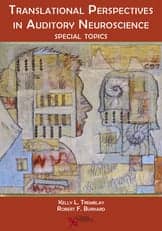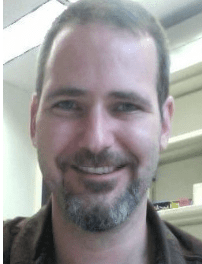Summary:
Psychologist Michael A. Harvey, PhD, explores how humor—when used thoughtfully with patients—can help hearing care professionals aid patients in coping with loss, reduce patient anxiety, build rapport, and reframe patients’ challenges related to hearing loss and tinnitus.
Key Takeaways:
- Humor as Emotional Armor: Appropriate humor, including “gallows humor,” can help people manage grief, trauma, and the emotional impact of hearing loss by providing psychological distance and resilience.
- Building Connection in Care: When used with sensitivity, humor helps hearing care professionals build trust, ease patient anxiety, and humanize clinical interactions without diminishing patients’ dignity.
- Therapeutic Benefits: Humor can biologically and psychologically disrupt negative thought cycles, improve mood, and empower patients to engage more positively with their hearing care and daily lives.
By Michael A. Harvey, PhD
I first learned about the value of humor for coping with loss from the following story:
“It was 3:00 a.m. and three tired and hungry ER residents are waiting for their pizza to be delivered. A nurse interrupts: “Trauma One—no pulse, no blood pressure.” The residents rush in and realize the victim is the teenage pizza delivery boy. They labor over forty minutes of resuscitation, but it fails, and his death is called at 4:02 a.m.
“The residents retreat to their lounge, more tired and despondent. Then one resident finally breaks the silence: “What happened to our pizza?”[1]
I was shocked and appalled when I heard this story. However, upon further reflection, I came to understand how so-called “gallows humor” helped those physicians cope with a tragic loss. As a less tragic analogy, I recall being in a friend’s car when he attempted to enter a state park through the exit to avoid paying an entry fee. This caused thousands of dollars’ damage to the car. His initial response: “At least I saved $1.50!”
Humor can serve as self-protective armor when suffering traumatic loss. As another example, 74-year-old “Bill” recounted that “Realizing I couldn’t hear well felt like a knife cutting through my heart. I finally agreed to get my hearing tested after my wife left this joke to me on my pillow:
“Mr. Smith suspects his wife is hard of hearing. He decides to test this. As his wife is chopping vegetables, he stands 10 feet behind her and says softly, ‘Honey, what’s for dinner?’ There’s no response, so he moves a step closer and asks more loudly, ‘Honey, what’s for dinner?’ She keeps chopping vegetables, so he steps even closer, raises his voice and says, ‘Honey, what’s for dinner?’ Hearing nothing, he starts to step even closer. Then his wife turns around and says, ‘Dear, I said ‘chicken and salad’ three times.’”
For several years, Bill’s wife had repeatedly pleaded, screamed, threatened, and begged him to get his hearing tested—all to no avail. Finally, it was her “joke” that, as his wife put it, “Got him off his ass to see an audiologist.” Her humor served as an emotional gift to her husband. It functioned as a psychological shield which protected him from the “piercing knife” of hearing loss and empowered him to do something about it. Interestingly, Bill continued to use humor after agreeing to be fit with hearing aids: As he recalled, “The audiologist told me I have a moderate-to-severe hearing loss. I said to her, ‘Thank God. I thought I was just married too long.’”
The judicious use of humor can be an effective intervention for helping professionals to facilitate treatment.[2] This topic is depicted in the film, Patch Adams. It is based on the book Gesundheit: Good Health Is a Laughing Matter in which Adams (a real-life physician) emphasized that laughter boosts the immune system and reduces stress. That’s why I believe it’s just as important as the scalpel or stethoscope. [3]
Building Rapport
Similarly, laughter can be an important factor for facilitating audiologic care. The judicious use of humor may help hearing care professionals (HCPs) to establish rapport with patients and to increase their adherence to treatment without undermining patient dignity. In the words of a 24-year-old man with newly diagnosed profound hearing loss, “Coming to terms with my deafness makes me feel less human. My audiologist understands this. His warmth and humor sometimes make me laugh as well, which proves to me that there’s still something to smile and laugh about. I’m still a vital human being.”
The benefits of humor are multifaceted. I explained this to John, a 30-year-old male who suffered from progressive hearing loss, leading to profound deafness. He began our conversation with, “You know, the one advantage about going deaf is I don’t have to listen to my brother-in-law’s incessant babbling.” He made a brief smirk, then a chuckle. “I shouldn’t laugh,” he said, “but it feels good.”
“You should laugh,” I responded. “Laughter does more than feel good.” I opened my file cabinet and took out a neuroscience journal. “Let me read you something,” I began.
“There are many benefits of humor on brain functioning. Stimulating the neurologic humor processing regions may reverse the chemistry of depression and anxiety. The brain’s default tendency is to give preferential attention to negative experiences over positive ones because of the potential threat to survival that negative experiences represent. Awareness of positive aspects of the environment often requires deliberate effort. Humor can disrupt negative neurological feedback loops.[4] Humor releases dopamine, endorphins, serotonin, oxytocin, and cortisol in your brain and stimulates the temporo-occipito-parietal areas, the mesocorticolimbic dopaminergic system, the amygdala, nucleus accumbens and ventral striatum, and your cerebellum[5].”
I added, “There’s a field called gelotology (the study of laughter) that will hopefully tell us more about the neuropathways of humor.” John’s eyes had glazed over, as had mine.
“I can’t wait,” he responded sarcastically. We both laughed. Later in our sessions, John would often joke “Hey, anymore neuro news about laughing?”
Note that with humor, timing is everything. HCPs should be careful not to initiate humor without a clear lead from the patient. As an HCP aptly put it, “I very seldom use a lot of humor during my first visit because I’ve got to figure out acceptable boundaries of communication.” Different providers have their own style. One audiologist, for example, sensed a strong rapport with a patient even at the initial visit. When the patient complained that others mumble instead of acknowledging his hearing loss, the audiologist instinctively responded, “Oh my God, you’re the umpteenth person who’s told me this. It must be an epidemic!” In this case, the audiologist’s deliberate use of humor softened the blow of challenging the patient’s defense of denial.
Humor as a Leveling Agent
Humor may act as a ‘leveling agent’ between a patient and HCP as it can reduce patients’ anxiety and humanize the clinical environment. Stated more technically, humor may lessen so-called traumatic transference. This is a common psychological phenomenon that causes patients to feel traumatized by a helping professional’s compassionate treatment. It is described in detail elsewhere.[6] For example, I recall asking a patient about how seeing an audiologist for his hearing test went. His response: “He was great. I’ve never been to a doctor who had a sense of humor.”
Here are some examples of patients of mine with hearing loss who benefited from humor:
Christine:
I met a mother of a recently diagnosed deaf infant who had just finished attending a workshop on grieving. I reached over to shake her hand, but first she said, “I want to make one thing damn clear before we begin. I do not feel guilty.” I shook her hand and responded, “Neither do I.” We both laughed. Later, she told me of how the leader of the grieving workshop had berated her for not verbalizing feelings of guilt and that she felt anxious that I would do the same. We worked collaboratively together. Later, we co-wrote an article about her non-guilt childrearing of her deaf daughter.[7]
Linda:
Linda is a 63-year-old woman who developed recent onset tinnitus approximately two months before we met. Her perception of “rumbling noises in her head” were often accompanied by earworms — what she described as “repetitive songs that are stuck in my head.” She was quite depressed and scared about her health, even though medical tests were normal. After several sessions of cognitive behavior therapy, she came to internalize that the tinnitus and earworms were not a health hazard.
Whereas she had previously reacted to tinnitus with dread and fear, now she reacted in a more neutral manner and with humor. “Now when I want to hear that song, I don’t have to turn on the radio!” We laughed. I replied, “You won’t waste electricity either.” We never again mentioned what she termed “the T word” (tinnitus). We instead referred to it as “The Radio.”
Bob:
I may ask patients with tinnitus to give it a humorous name. The principle is akin to soldiers dehumanizing the enemy to facilitate combat. Here, giving the “tinnitus enemy” a humorous name may lessen its subjugating power over a patient. Bob, a 72-year-old- man reported that the “ringing in my head” was taking over his life. After several psychotherapy sessions aimed at modifying that dysfunctional cognition, he named his tinnitus Clarence after the character on the classic American TV sitcom Leave It to Beaver(1957–1963). As he explained, “Clarence Lumpy Rutherford is clumsy, goofy, and a bit of a bully, but he’s not truly mean-spirited. He’s more about bravado than malice.”
From then on, we replaced the word “tinnitus” with “Clarence.” It has become a running joke. I would often begin our sessions with, “How are you doing with getting Clarence to behave?” And I often asked him to give Clarence my regards, or he would say, “Clarence says hello.”
Sharing Hearing Loss Humor
At an appropriate time in treatment, I may ask patients to bring in examples of “hearing loss humor.” The following is a sample:
- One audiologist comforted a patient who worried that his hearing aid would squeal in public. She told him, “Don’t worry—we’ll teach it to behave.”
- Jim went to his audiologist and got the newest advanced technology hearing aids. The audiologist asked, “How do you like them? Jim responded, They are fantastic, light years ahead of my last pair. I can hear every word, even in noisy situations! The audiologist said, “I’ll bet your family is happy too.” To which Jim replied, “I haven’t told them yet. But I’ve changed my will three times.”
- An elderly couple was sitting in church. The woman turned to her husband and said, “I think I just passed a silent fart. What should I do?” The man said, “The first thing you should do is put new batteries in your hearing aids.”
In the words of Gael Hannan, a hearing health advocate who has a hearing loss herself, “They say that to live successfully with hearing loss, you must keep your sense of humor.”[8] Hearing care professionals can play an important role in helping patients achieve that goal. The following is a letter that a mother wrote to her audiologist many years after he had diagnosed her infant with a profound hearing loss:
“Dear Dr. Smith,
Thank you for your technical expertise and for being there, for listening, and for making it possible for me to leave your office with confidence and hope. But most of all, thank you for what surprised me the most. I never thought anyone could get me to chuckle in the face of my heartbreak and struggle.
“You were right; everything is okay. Tommy (or ‘Tom’ as he now insists on being called) is 15 years old. He’s a happy kid and a pleasure to be with most of the time (I just wish he’d clean up his room more, but that’s not within your area of expertise).
“With much gratitude and love, Joan.”[9]
About the Author
Michael A. Harvey, PhD, is a clinical psychologist and was previously consultant faculty at Salus University. His most recent books are The Odyssey of Hearing Loss: Tales of Triumph and Listen with the Heart: Relationships and Hearing Loss, both published by Dawnsign Press. Feedback is welcome at [email protected].
Featured image: ID 35049909 © Terence Mendoza | Dreamstime.com
References
[1] Katie Watson, K. (2011). Gallows humor in medicine. Hastings Center Report 41(5), 37-45.
[2] McCreaddie, M., & Wiggins, S. (2007). The purpose and function of humour in health, health care and nursing: A narrative review. Journal of Advanced Nursing, 61(6), 584–595.
[3] Adams, P., & Mylander, M. (1993). Gesundheit: Good health is a laughing matter. Healing Arts Press.
[4] Force, N. (2011, May 3). Humor’s hidden power: Weapon, shield & psychological salve. Halifax, Nova Scotia: Braeden Press.
[5] Vrticka, P., Black, J. M., & Reiss, A. L. (2013). The neural basis of humour processing. Nature Reviews Neuroscience, 14(12), 860–868
[6] Harvey, M.A. (2024). Managing patients’ traumatic transference through collaboration. Hearing Review. 2024;31(9):26-29. https://hearingreview.com/hearing-loss/patient-care/managing-patients-traumatic-transference-through-collaboration
[7] Harvey, M.A. & Green, C. (1991). Looking into a deaf child’s future: a brief treatment model. American Annals of the Deaf, 22, 112-122.
[8] Hannen, G. (2012). Hearing Health and Technology Matters. Laughing at Hearing Loss. https://hearinghealthmatters.org/better-hearing-consumer/2012/laughing-at-hearing-loss
[9] Harvey, M.A. (2000). The transformative power of an audiology visit. Hearing Journal. 53(2), 43-47.





